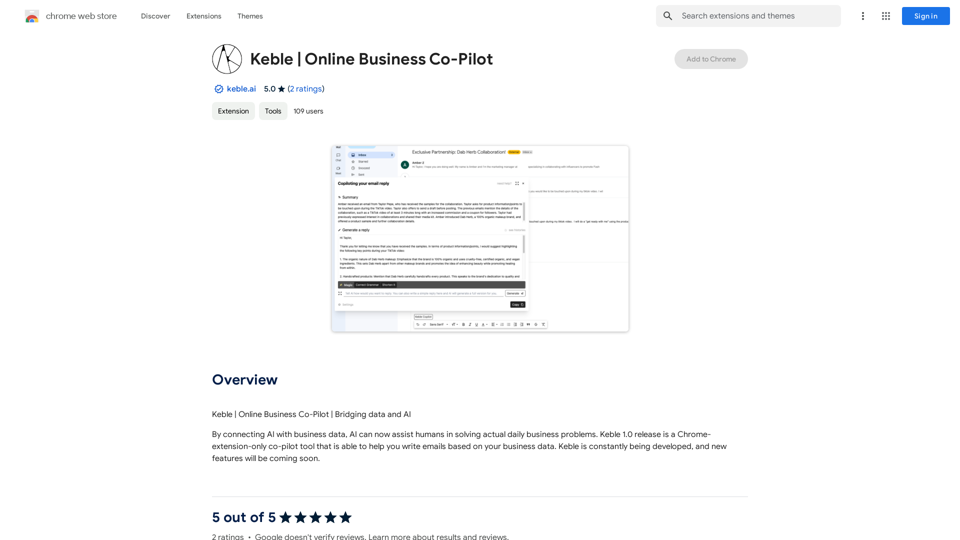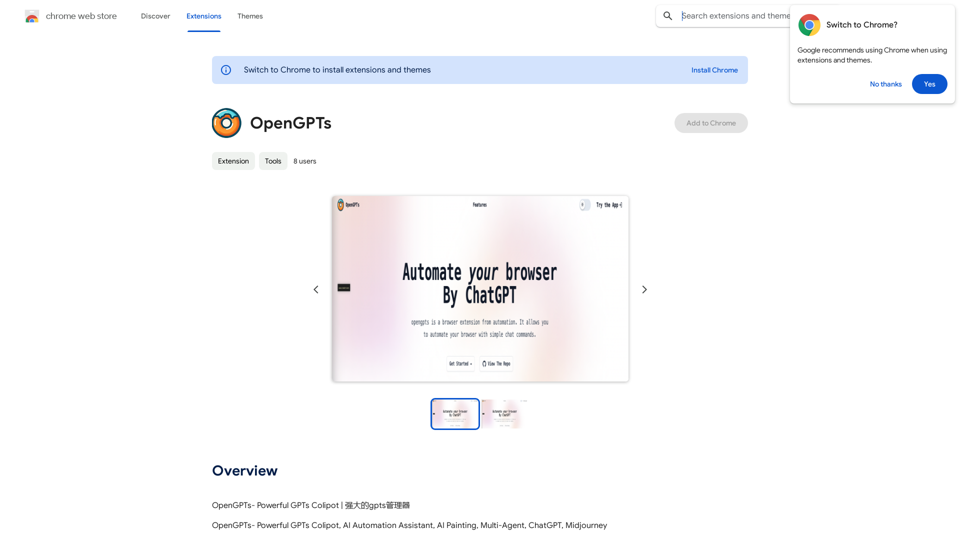HearMeOut is a free Chrome extension that leverages AI to summarize Google Search results and convert them into audio with a single click. This tool is perfect for those who prefer listening over reading or require auditory assistance, offering a seamless way to consume information efficiently.
HearMeOut (GPT Webpage Summarizer)
Where webpages speak to you. Summarizes a Google Search result and converts it into audio using GPT.
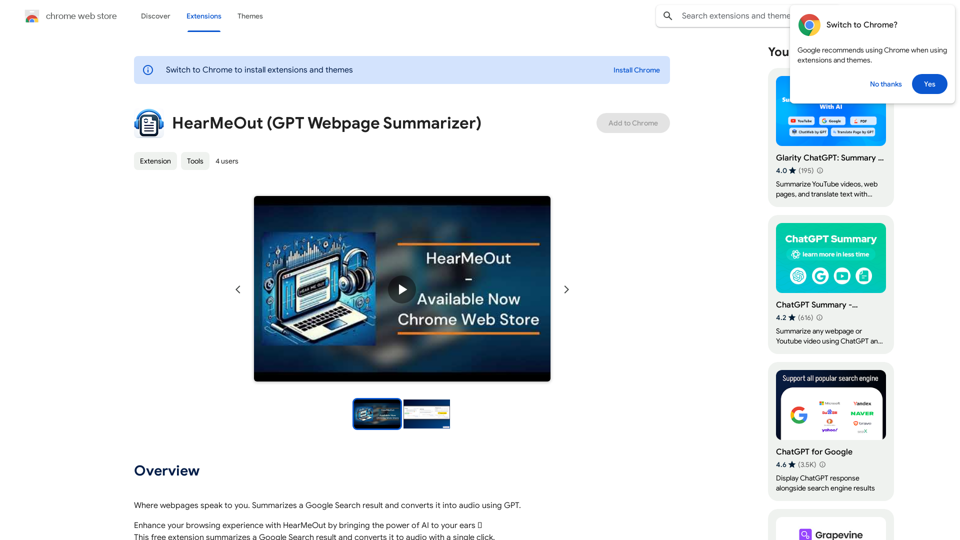
Introduction
Feature
AI-Powered Summary Generation
HearMeOut uses advanced AI technology to create quick and concise summaries of any Google search result, allowing users to grasp the essence of lengthy articles effortlessly.
Text-to-Audio Conversion
The extension converts the generated summary into high-quality audio, utilizing AI to produce accurate and realistic speech that goes beyond basic text-to-speech capabilities.
One-Click Simplicity
Users can access summaries and audio with just a single click, thanks to HearMeOut's user-friendly interface and streamlined process.
Multitasking Support
Perfect for efficient information consumption, HearMeOut enables users to listen to summaries while engaging in other tasks, enhancing productivity.
Accessibility Features
The extension serves as a valuable tool for individuals with visual impairments or reading difficulties, promoting inclusive and accessible learning.
Transparency and Safety
As an open-source extension, HearMeOut ensures complete transparency. User API keys are stored locally, prioritizing data security and user privacy.
FAQ
How does HearMeOut work?
HearMeOut utilizes AI to summarize Google Search results and convert them into audio with a single click. The process involves installing the extension, searching on Google, clicking the HearMeOut icon, and listening to the generated audio summary.
Is HearMeOut free to use?
Yes, HearMeOut is a completely free Chrome extension with no subscription fees or hidden costs.
How is user data protected?
HearMeOut prioritizes user privacy and data security. The extension stores API keys locally on the user's computer and never shares this information with third parties.
Related Websites
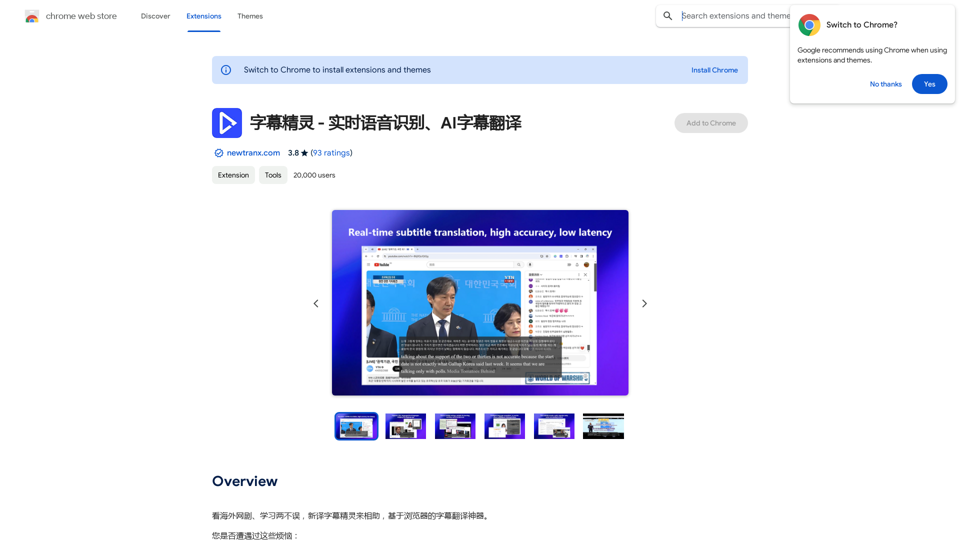
Subtitle Wizard - Real-time Speech Recognition, AI Subtitle Translation
Subtitle Wizard - Real-time Speech Recognition, AI Subtitle TranslationWatch foreign TV series and learn without mistakes, the new subtitle translation elf is here to assist, a browser-based subtitle translation artifact.
193.90 M
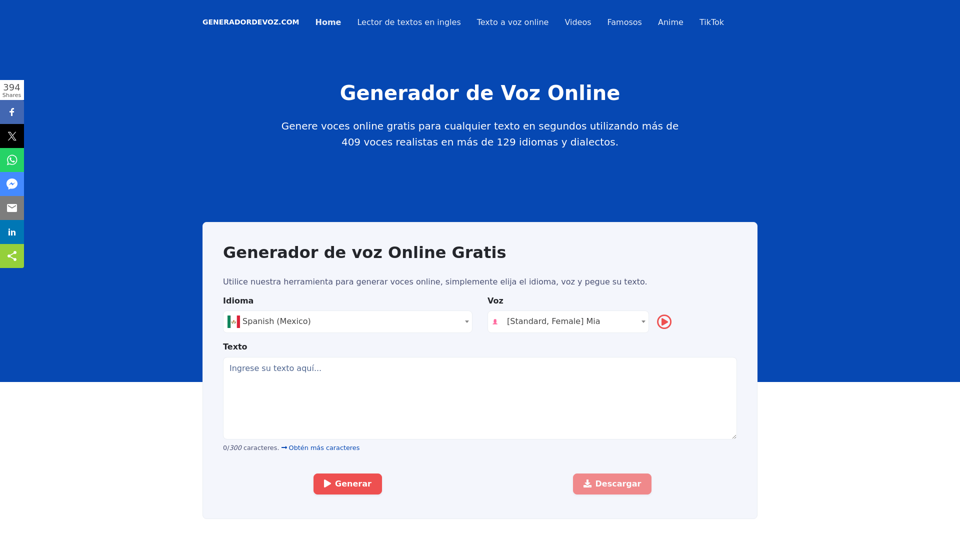
Online Voice Generator for Free with over 600 voices. Generate realistic voices on our website quickly and download it as MP3.
5.84 K
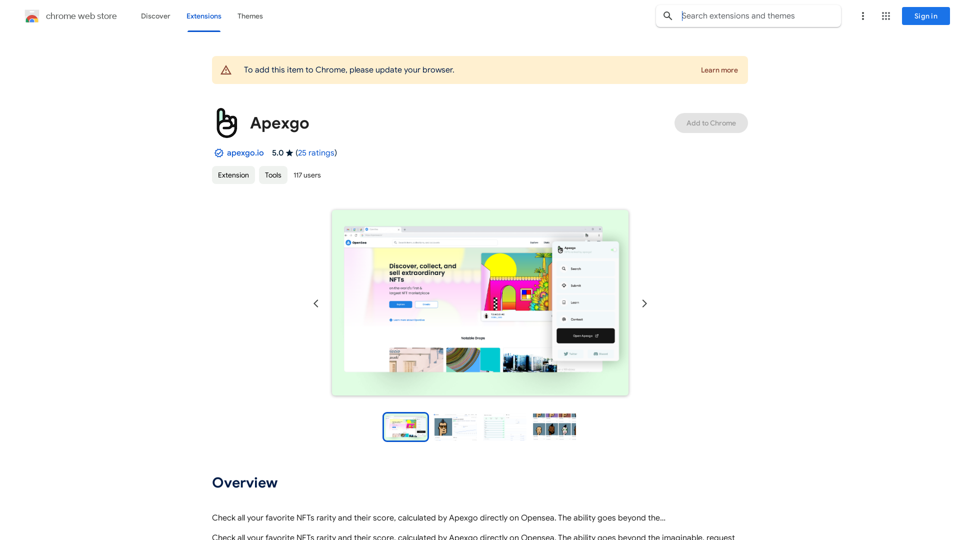
Check the rarity and score of all your favorite NFTs, calculated directly by Apexgo on Opensea. This feature goes beyond the...
193.90 M
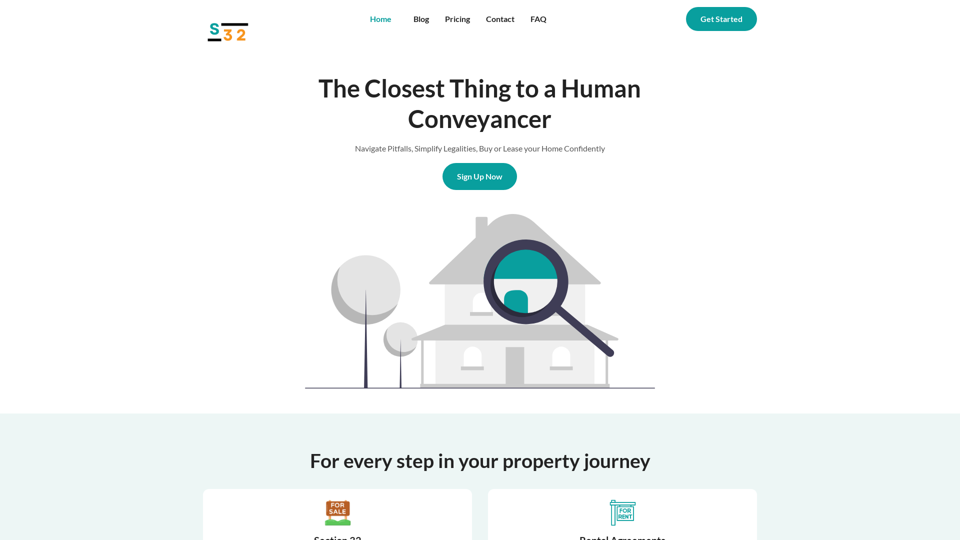
S32 | Your Personal AI Conveyancer for Section 32 and Rental Agreements
S32 | Your Personal AI Conveyancer for Section 32 and Rental AgreementsThe Closest Thing to a Human Conveyancer
69
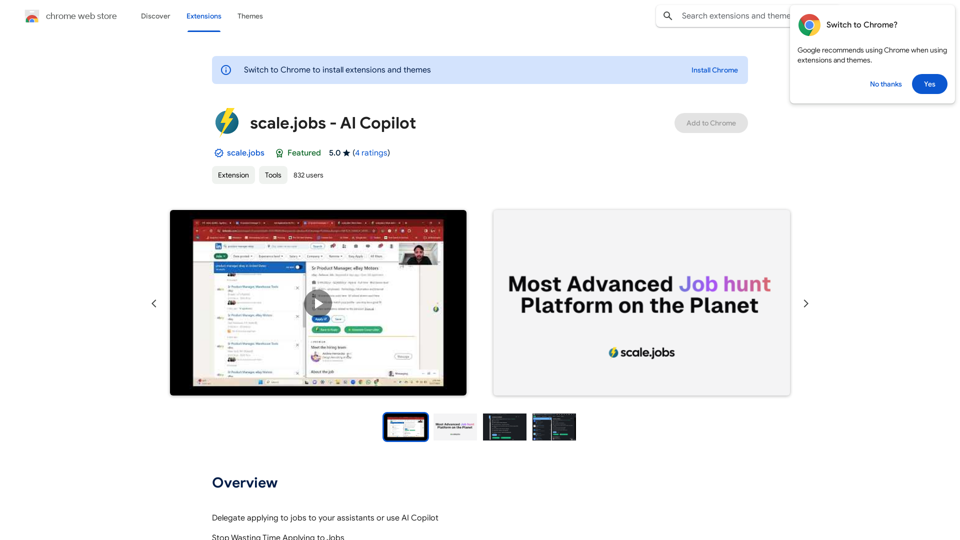
Delegate applying to jobs to your assistants or use AI Copilot Applying to jobs can be a tedious and time-consuming task. Delegate this task to your assistants and let them handle the initial application process, including resume submission and cover letter writing. Alternatively, utilize AI Copilot, an innovative tool that can automate the job application process, saving you time and energy. By delegating or automating this task, you can focus on more important things, such as preparing for interviews, networking, and building meaningful connections in your industry. This approach can also increase your chances of getting hired, as your assistants or AI Copilot can help you apply to more job openings, thereby increasing your visibility and reach. Remember, time is valuable, and by delegating or automating the job application process, you can make the most of your time and achieve your career goals more efficiently.
193.90 M
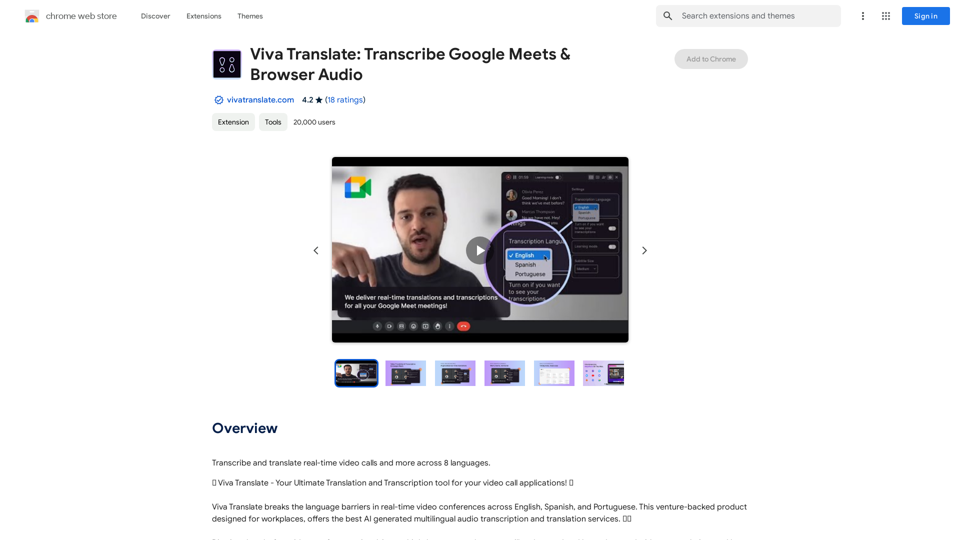
Viva Translate: Transcribe Google Meets & Browser Audio
Viva Translate: Transcribe Google Meets & Browser AudioTranscribe and translate real-time video calls and more across 8 languages.
193.90 M
